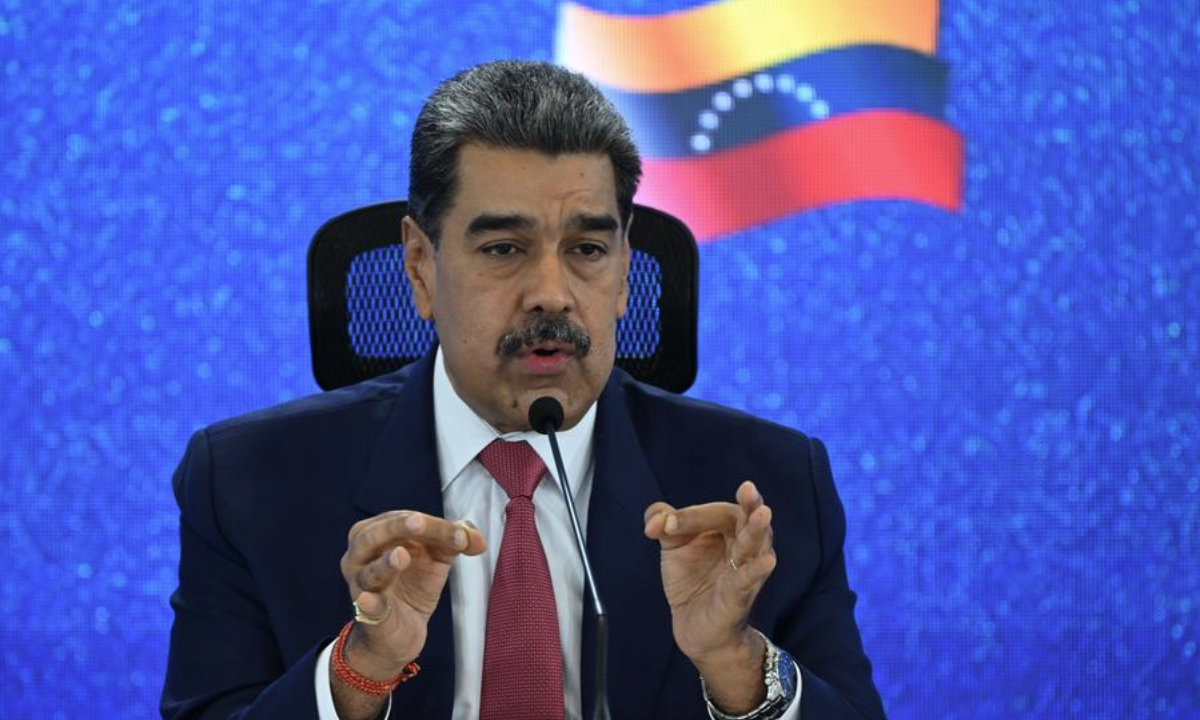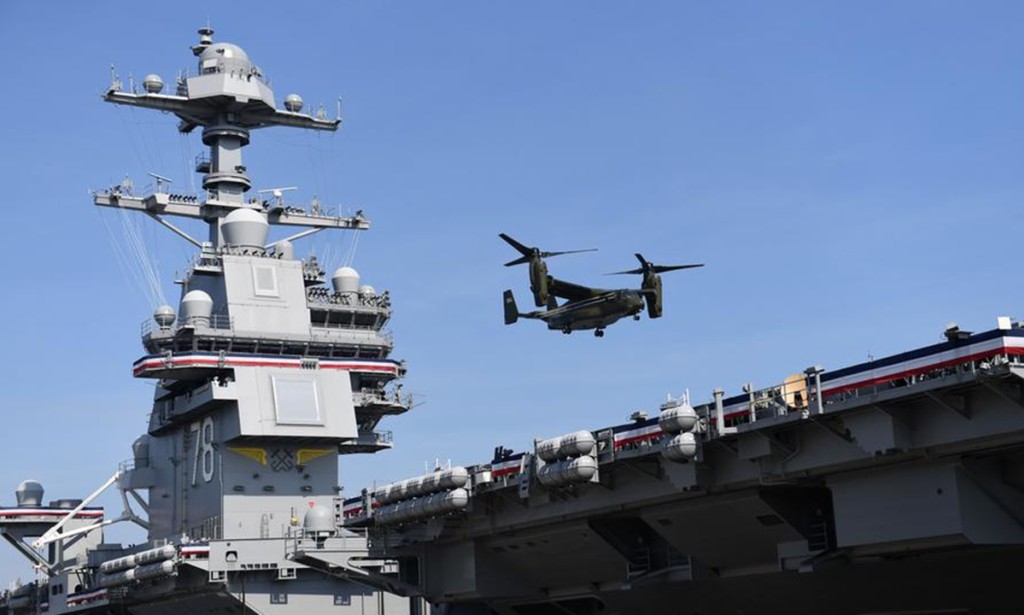A U.S. aircraft carrier's arrival in the Caribbean Sea on Tuesday, where recent American military strikes have killed dozens of civilians suspected to be drug dealers, raised criticism from various parties and risked further escalating regional tensions.
With the addition of the Gerald R. Ford Carrier Strike Group, led by the world's largest aircraft carrier, U.S. deployment in the Caribbean now exceeds 15,000 personnel, the largest military buildup in the region in three decades.
"These forces will enhance and augment existing capabilities to disrupt narcotics trafficking and degrade and dismantle Transnational Criminal Organizations" in the Western Hemisphere, a statement issued by the U.S. Naval Forces Southern Command cited Chief Pentagon Spokesperson Sean Parnell as saying on the same day. The command's area of responsibility encompasses Latin America and the Caribbean.
Venezuela, in response, ordered a large-scale military assembly to counter the U.S. naval presence off its coast while warning that the U.S. action could trigger a full-blown conflict.
According to Venezuelan Defense Minister Vladimir Padrino, some 200,000 troops on Tuesday participated in an exercise to counter "imperial threats" and ensure the country was "safeguarded, protected, defended."
The confrontation sparked concern and condemnation from various parties.
French Foreign Minister Jean-Noel Barrot noted the U.S. military operations in the Caribbean "violate international law," on the sidelines of the Group of Seven foreign ministers' summit in Canada on Tuesday. His Russian counterpart, Sergei Lavrov, noted on the same day that U.S. strikes demonstrated the actions of "lawless countries" as well as "those who consider themselves above the law."
Since early September, the U.S. forces have carried out military attacks on at least 20 vessels in international waters, killing at least 76 people, according to U.S. figures. But they haven't yet presented evidence that these targets were used to smuggle drugs. Pentagon officials admitted they do not know the identities of all the people killed in those attacks at a confidential briefing held on Oct. 30 by a panel at the House of Representatives, according to U.S. media, citing Democratic lawmakers who attended.

Venezuelan President Nicolas Maduro addresses a press conference in Caracas, Venezuela, Sept. 15, 2025. (Presidency of Venezuela/Handout via Xinhua)
Venezuelan President Nicolas Maduro has repeatedly condemned Washington's actions as attempts to deprive him of power and expand U.S. military influence in Latin America.
"They are murdering defenseless people, whether or not they are drug traffickers, executing them without due process," his defense minister emphasized.
Human rights experts echoed that the attacks amount to extrajudicial killings, even if they target known traffickers.
Earlier this month, U.S. President Donald Trump accused Maduro of being a drug lord and predicted that Maduro's days were numbered. His administration also imposed sanctions on Colombian President Gustavo Petro on Oct. 24 amid deteriorating bilateral relations. The U.S. Department of the Treasury has accused Petro of allowing drug cartels to "flourish."
Petro, for his part, slammed the United States for using its anti-drug policy as a pretext to justify the use of force in the Caribbean region to take control of oil reserves.
Regional countries and countries at large were worried about the continued deterioration of the regional situation. While the Community of Latin American and Caribbean States and the European Union convened their fourth summit on Nov. 9 and 10 in Santa Marta, Colombia, they issued a joint declaration opposing the threat or use of force over peacebuilding.



You must be logged in to post a comment.